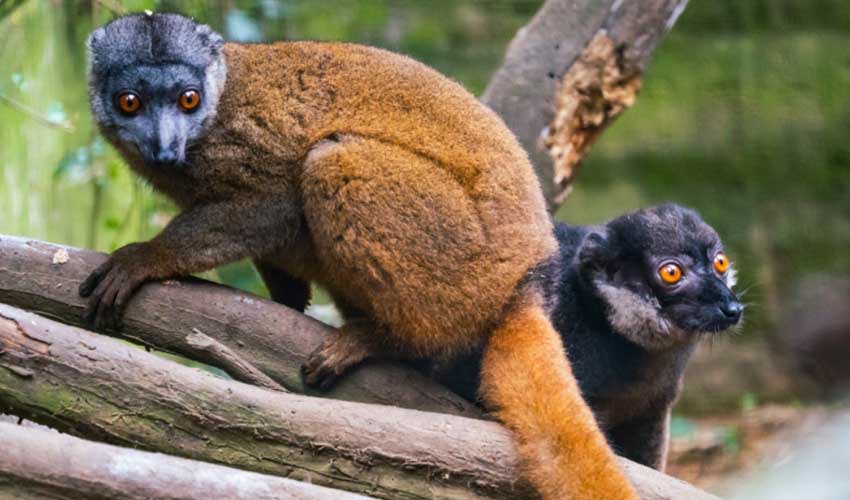One of Madagascar’s lesser-known but fascinating primates, found only in a narrow strip of southeastern Madagascar’s dry and humid forests. Sometimes called the gray-headed brown lemur, this species has long been a puzzle for scientists—it was once considered just a variation of the brown lemur group, but genetic and behavioral studies have confirmed that it is distinct. With its soft, muted coloring and its secretive habits, the gray-headed lemur is a striking example of Madagascar’s incredible primate diversity.
Its most distinctive feature is its gray crown and face, which contrasts with the reddish-brown body and darker back. The eyes are a piercing orange-red, giving it an intense, alert expression. Males and females look quite similar, though their fur tones may vary slightly.
The gray-headed lemur is an arboreal and mostly nocturnal species, unusual among lemurs in that it shows cathemeral behavior—meaning it is active both day and night, depending on food availability and environmental conditions. Its diet is primarily frugivorous, feeding heavily on fruits, but it also eats leaves, flowers, and sometimes bark or seeds. Because of this, it is an important seed disperser, helping Madagascar’s forests regenerate.
Socially, gray-headed lemurs live in small groups of 5–10 individuals, usually with a balanced mix of males and females. Unlike sifakas, they do not leap dramatically between trees; instead, they move nimbly and steadily along branches, often foraging together. Communication includes a wide range of grunts, clicks, and alarm calls, as well as scent-marking, since smell is crucial for lemur social interaction.
Distribution
 Madagascar
MadagascarAnything we've missed?
Help us improve this page by suggesting edits. Glory never dies!
Suggest an editGet to know me
Terrestrial / Aquatic
Altricial / Precocial
Polygamous / Monogamous
Dimorphic (size) / Monomorphic
Active: Diurnal / Nocturnal
Social behavior: Solitary / Pack / Herd
Diet: Carnivore / Frugivore / Omnivore / Piscivorous / Insectivore
Migratory: Yes / No
Domesticated: Yes / No
Dangerous: Yes / No




